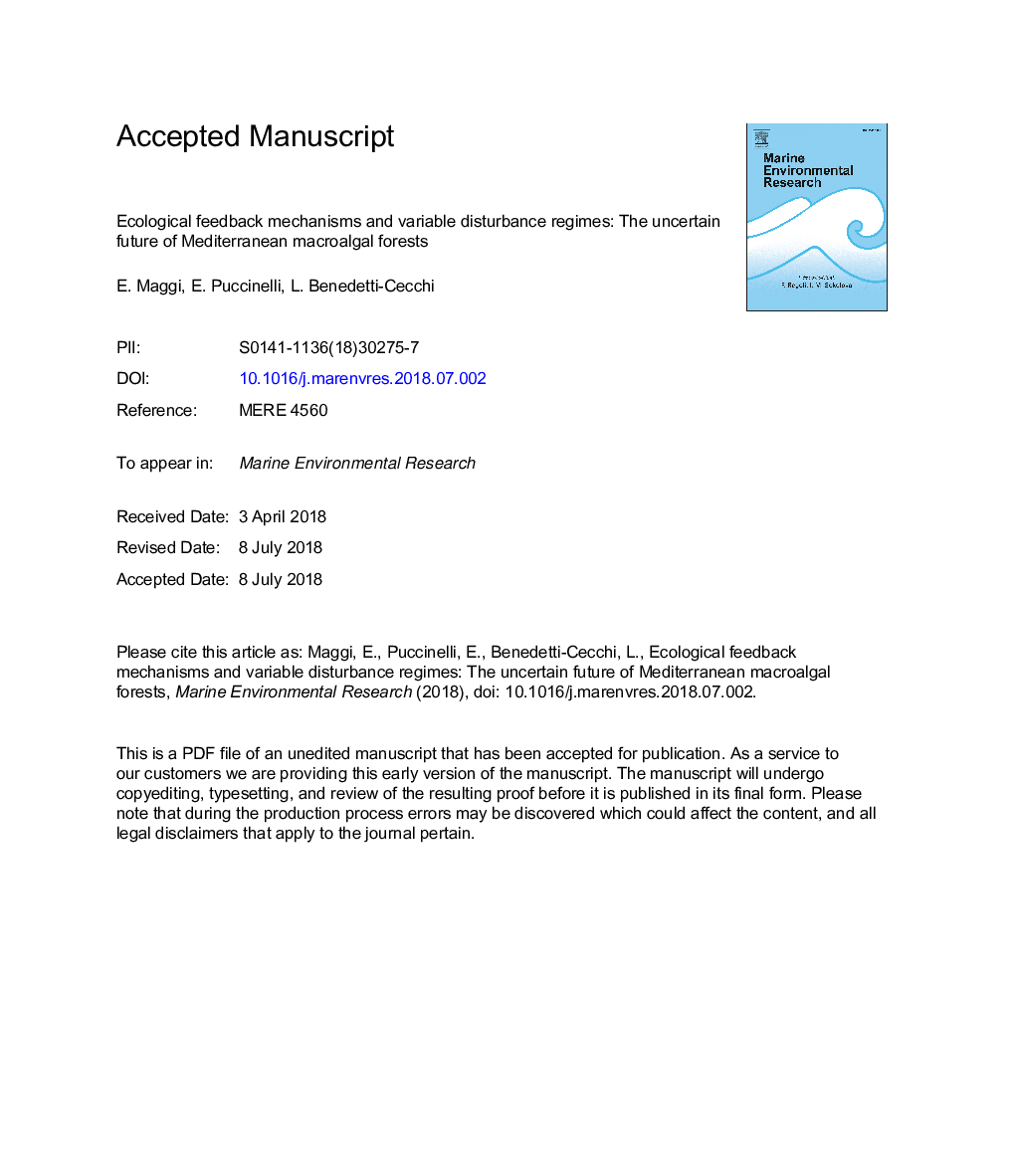| Article ID | Journal | Published Year | Pages | File Type |
|---|---|---|---|---|
| 10223922 | Marine Environmental Research | 2018 | 41 Pages |
Abstract
Loss of algal canopies can result in a shift towards a turf-dominated state, where variability in species life-history traits can determine new mechanisms of feedback, and influence the degraded system under variable regimes of disturbance. By focusing on rockpools dominated by Cystoseira brachycarpa, we tested the hypothesis that the alga Dictyopteris polypodioides could take advantage of extreme regimes of disturbance related to storms, and outcompete other turfs through a distinctive combination of life traits. Replacement of the canopy was initially driven by a mix of taxon-specific life-traits and resulting assemblages were susceptible to intense events of disturbance. Subsequently, D. polypodioides dominated removal quadrats, favored by density-dependent abilities to intercept more light and reach larger size than the rest of turf. These new positive feedbacks may contribute to maintain the modified state of the system and influence its ability to withstand extreme abiotic conditions.
Related Topics
Physical Sciences and Engineering
Earth and Planetary Sciences
Oceanography
Authors
E. Maggi, E. Puccinelli, L. Benedetti-Cecchi,
